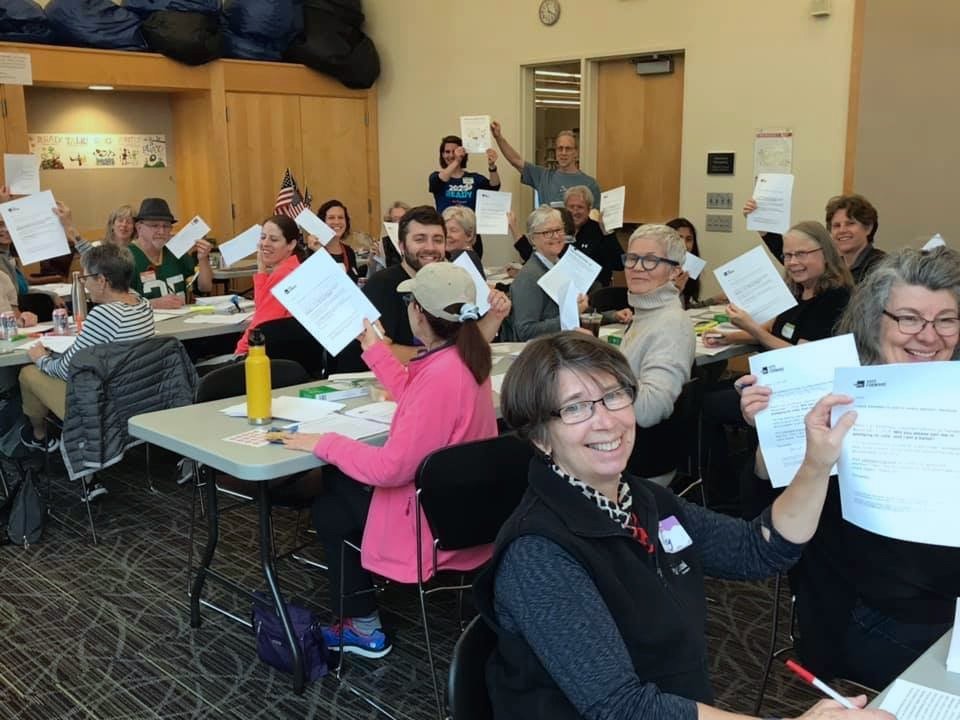
Protect Our Freedoms
Through nonviolent advocacy and grassroots action, we make our voices heard and work to elect leaders who govern in our name and in our interests.
UPCOMING EVENTS
Indivisible Oregon
Organizing in the greater Portland area since 2017
Numbers updated April 2025
-
We are strongest when we stand united. Participate in daily actions, join events, or become a volunteer to help out behind the scenes.
-
We organize a variety of advocacy and elections events including rallies, meetings with our elected officials, phone-banking, door-knocking and letter-writing.
-
For over eight years, we’ve been empowering volunteers and building our movement, one action at a time.
-
We partner with Vote Forward and other organizations to hand-write letters and postcards to voters in key elections.
-
We make it easy to call our elected officials and urge them to act, by researching and posting timely actions every week.
Indivisible Oregon unites people in the greater Portland area, and across Oregon, to protect our freedoms and ensure everyone has an equal say in the decisions that shape our lives.
The volunteers of Indivisible Oregon empower Oregonians to make the promise of democracy real for us all, no matter where we come from or what we look like.
To achieve this, we:
Proactively educate Oregonians, inspiring them to take civic action.
Reach out to voters and constituents in key states to elect progressive leaders and hold all leaders accountable.
Draw together our community of Oregon activists to let our Members of Congress know what is important to us.
Rally our volunteers with a drumbeat of advocacy to make progressive, anti-racist legislation a reality.
Get Involved
Call Today
Call your Members of Congress routinely, asking them to take concrete action.
Reference our Calls to Action to coordinate our response.
Attend Events
Show up for our pro-democracy movement! Join events organized by Indivisible Oregon or our partner organizations.
Together, we're building community, we're taking action, and we're working to elect more Democrats to balance the MAGA power grab.
Subscribe
Stay in the loop! Sign up for our newsletter and follow us on Social Media:






























